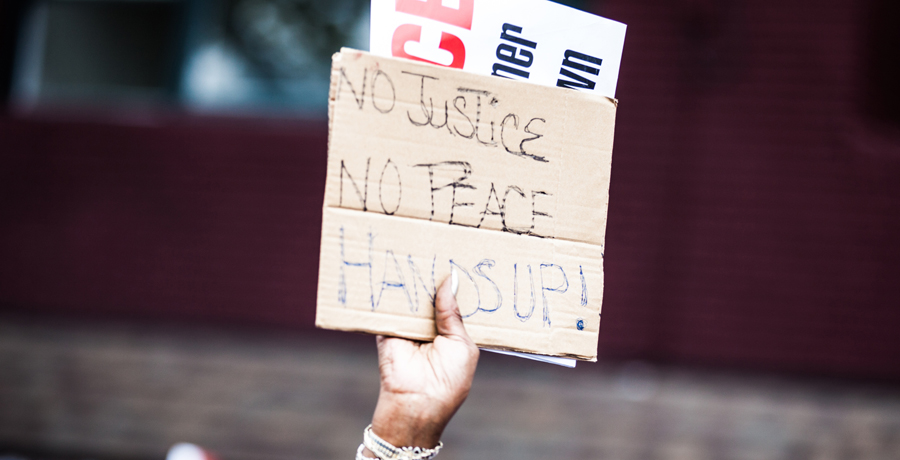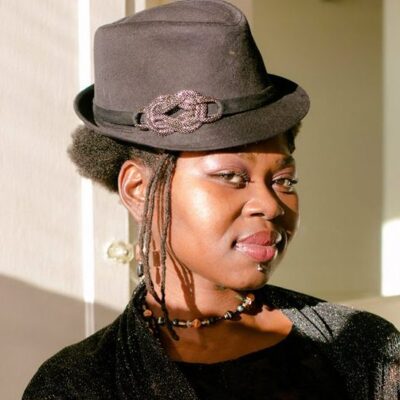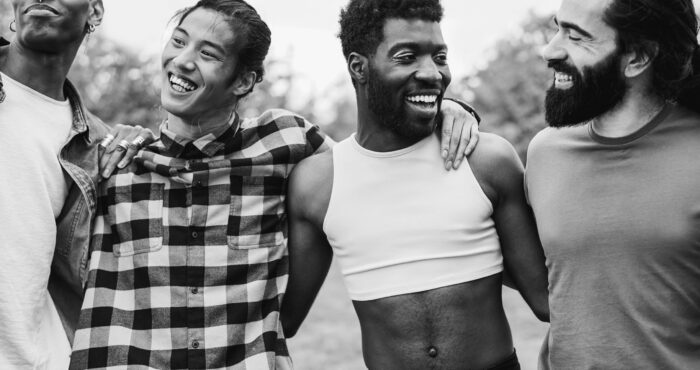Juneteenth: It’s time to enact the change

I come to you now with a solemn soul and a heavy heart in the wake of yet another Black body slain in the streets.
George Floyd is among a nearly countless number of Black people in America whose murder has been publicized since the murder of Emmett Till. This is not news, America, because this is not new. But for the first time in history, we have access to the media constantly at our fingertips, and COVID-19 has made us all relentless media consumers. Know your history.
Fear of the Black male archetype is the leading cause of unarmed shootings in the U.S. This is a fear based on race and gender alone, with assumptions on class, education and intent. Our lack of knowledge of each other across lines of race and gender is what perpetuates these fears and actions. It is NOT OK that a Black man cannot simply and safely be a man in this country.
The problem is that Black people are getting burnt out fighting the same fight for our lives–and we know that this is not a burden for the African American community to continue trying to carry on our own.
During the Martin Luther King era of the civil rights movement, we stood in solidarity with allies of every race. The Asian American civil rights movement would not have been possible without the structure provided by what was happening in the Black community, and Asian Americans in turn stood by our side. Native Americans, whose names and land had been systemically appropriated, stood by our side.
We need you to stand for us now, and we need you to use your voices to speak up for Black lives. We cannot do this without the Latinx community, La Raza, Jewish-Americans, Baruch Atah Adonai Eloheinu Melech Ha-Olam: Blessed are You, Adonai our God, Ruler of the Universe. I ask you to stand with us now.
What we don’t need are counter-movements: All Lives Matter demonstrators detract from the importance of Black Lives Matter. It’s not simply a “nice phrase”–it’s a malicious attempt to turn a blind eye to the suffering of Black people in this country and dampen the critical movement to end police brutality and murder of people of color.
It is time to dismantle this system. Taking down the memorials and statues to people throughout history who have succeeded on the backs of enslaved people is only a start. It is time to continue this movement. The most information about Black culture comes from the big screen. Where movies like “The Help” still tell the story of Black history through the lens of white gaze. Our history is NOT for your entertainment. Or even worse, through the media where Black and Brown peoples behaving peacefully are still depicted as and treated like animals. Our blood in the streets is NOT for your entertainment. Our history should be for everyone’s education.
I BEG of you, do not sit down. Every time we sit, another Black person dies, every time we forget, another Black person dies. And, anytime we let ourselves get distracted, we lose a few more rights and another Black person dies.
On June 19, 1865, two and a half years after the signing of the Emancipation Proclamation and two months after the end of the Civil War, enslaved people in Galveston, Texas, learned that they had been freed from bondage. Nearly four million Black and Brown people were set free by that summer, yet it would take another ninety years to begin to see the enforcement of equal treatment. And despite what you may think, things did not get better. Though our bodies had been freed, the trauma of slavery still affects people of color to this day.
Generational trauma, specifically the trauma of sexual aggression, and race-based gender bias have all continued to impact views of African Americans and other people of color around the world. Generational trauma is the idea that trauma and its effects can be passed down from one generation to the next– through environment, learned behavioral patterns, survival mechanisms, and repeated cycles of abuse.
Let me be very clear we all have generational trauma. However, in communities of color, health care, resources, education and knowledge around how to heal from these issues are disproportionately and systemically withheld–especially from Black communities. It is believed that many African Americans do not value therapy, but what people do not understand is that many Black people have trauma and fear around the health care system. That fear prevents them from seeking health care and therapy for any kind of trauma. Until you understand what we deal with, please do not assume that you understand why.
In the fifties, my grandmother died because she was turned away from the nearest hospital. They did not treat colored people at that establishment. My cousin died in the sixties at age 23 trying to be treated in the wrong neighborhood without insurance. In the eighties, my aunt was forcibly sterilized as a teenager during an appendectomy, because the American eugenics movement made it legal to forcibly sterilize anyone deemed unfit to procreate (which included Black people).
And, as recently as the turn of this century, a young Black man named Oluchi Nowadi McDonald died at age 19 in a hospital emergency waiting room in Los Angeles, from a survivable, common birth defect. The son of Akilah Oliver, an acclaimed artist and poet, he was examined and x-rayed at a private hospital, and then turned away because he had no insurance. In extreme pain, he was transferred across town to the King/Drew Memorial Hospital where he waited to be re-examined and x-rayed again. Placed in the waiting room, he was found dead from asphyxiation caused by the condition he had sought treatment for 18 hours earlier. His mother was not informed for two weeks.
We know that years of redlining allowed white communities to build generational wealth, while Black ancestors and other people of color were refused loans and government services and many became indebted to predatory lending practices. This is the system. Black families who were able to get a foothold into economic stability still had to face the terror of having their homes and families threatened for having the smallest bit of success.
Even our history is subject to erasure: Until the 1990s, public knowledge of the massacre of the Black community in Tulsa, Oklahoma in 1921 had largely been covered up and ignored by white supremacist accounts of history.
This is how institutions commit murder. This is how systemic racism affects our health, and our lives.
To this day, Juneteenth is celebrated locally in 46 of the fifty states, but it is rare for public schools and workplaces to commemorate the day. Local celebrations in 46 out of 50 states may seem like “plenty” of the country, but educational inequality still exists. One of the reasons Juneteenth is not recognized nationally is because the curriculum requirements needed to support it are not in place. Not only are people of color being taught differently in school systems, but the curriculum requirements are not nationally inclusive of the experiences and contributions that people of color have made to this nation. Lack of knowledge is what perpetuates fear and oppression. National recognition of Juneteenth can begin to increase the sense of the importance of knowledge, equality and unity for all.
Make Juneteenth a national holiday so that every person in our country knows about Black history.
—
More information available from Juneteenth.com and Hella Juneteenth
#StopRacialProfiling
#StopMedicalDescrimination
#ProtestInPlace
#PrideInPlace










